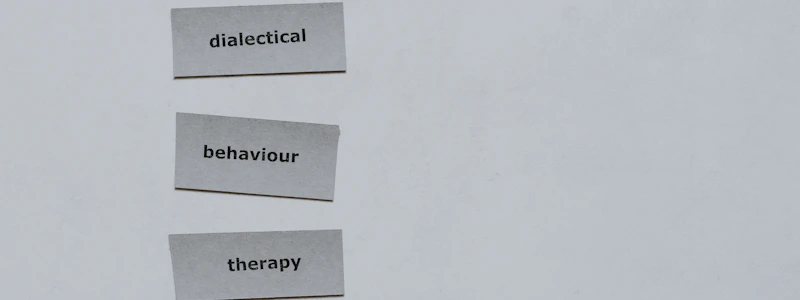Podcast
Questions and Answers
According to Social Comparison Theory, when do people engage in social comparison?
According to Social Comparison Theory, when do people engage in social comparison?
- When no objective standard exists to measure against (correct)
- When they are certain about their abilities and attitudes
- When they are not interested in others' opinions
- When they are completely satisfied with themselves
What are the three principal elements of the self-idea mentioned in the text?
What are the three principal elements of the self-idea mentioned in the text?
- Imagination of perfection, comparison with others, self-doubt
- Physical appearance, material possessions, social status
- Imagination of appearance, imagination of judgment, self-feeling (correct)
- Judgment of others, judgment of oneself, judgment of society
What is the imagined effect that moves us to pride or shame, according to the text?
What is the imagined effect that moves us to pride or shame, according to the text?
- Approval or disapproval from society
- Material possessions and wealth
- Physical appearance in the mirror
- Imputed sentiment, the imagined effect of reflection upon another's mind (correct)
According to Cooley, what makes all the difference in our feeling of pride or shame?
According to Cooley, what makes all the difference in our feeling of pride or shame?
What does Social Comparison Theory propose?
What does Social Comparison Theory propose?
What does the comparison with a looking-glass hardly suggest, according to the text?
What does the comparison with a looking-glass hardly suggest, according to the text?
According to Cooley, what is the thing that moves us to pride or shame?
According to Cooley, what is the thing that moves us to pride or shame?
What is the imagined judgment mentioned in the text?
What is the imagined judgment mentioned in the text?
According to Social Comparison Theory, why do people engage in social comparison?
According to Social Comparison Theory, why do people engage in social comparison?
What is crucial to the development of a self-concept, according to the text?
What is crucial to the development of a self-concept, according to the text?
What is self-monitoring?
What is self-monitoring?
What is self-handicapping?
What is self-handicapping?
What is competence motivation?
What is competence motivation?
What is shyness?
What is shyness?
What is ingratiation?
What is ingratiation?
What is self-verification theory?
What is self-verification theory?
What is self-presentation?
What is self-presentation?
What is impression management?
What is impression management?
What is self-handicapping?
What is self-handicapping?
What is the spotlight effect?
What is the spotlight effect?
Which type of social comparison involves comparing oneself with others who are worse off?
Which type of social comparison involves comparing oneself with others who are worse off?
What theory suggests that self-esteem is driven by a sociometer and terror management?
What theory suggests that self-esteem is driven by a sociometer and terror management?
Which model views self-control as a limited resource that can rebound with practice and intention setting?
Which model views self-control as a limited resource that can rebound with practice and intention setting?
What kind of strategies are used to shape how others perceive us, such as the spotlight effect?
What kind of strategies are used to shape how others perceive us, such as the spotlight effect?
What does the limited resource model and ego depletion influence?
What does the limited resource model and ego depletion influence?
What can high self-esteem lead to, according to the text?
What can high self-esteem lead to, according to the text?
What kind of illusions can have both benefits and costs, according to the text?
What kind of illusions can have both benefits and costs, according to the text?
What is the executive function involving choices about present and future plans?
What is the executive function involving choices about present and future plans?
What involves protecting self-esteem through strategies like 'bask in the reflected glory' and 'cut off reflected failure'?
What involves protecting self-esteem through strategies like 'bask in the reflected glory' and 'cut off reflected failure'?
What involves controlling and altering thoughts, feelings, and behaviors through the control theory of self-regulation?
What involves controlling and altering thoughts, feelings, and behaviors through the control theory of self-regulation?
Flashcards are hidden until you start studying
Study Notes
Understanding Social Comparison, Self-Regulation, and Self-Esteem
- Social comparison involves downward, upward, and lateral comparisons, influencing how we feel about ourselves.
- Studies show women are content with lower pay compared to men, even when they work the same hours.
- Self-control is an executive function involving choices about present and future plans, influenced by the limited resource model and ego depletion.
- Self-esteem is an evaluative component of the self, driven by sociometer and terror management theories.
- Self-evaluation maintenance involves protecting self-esteem through strategies like "bask in the reflected glory" and "cut off reflected failure."
- High self-esteem can lead to sensitivity to threats and counterproductive behaviors.
- Positive illusions, such as unrealistically positive self-views and exaggerated perceptions of control, can have both benefits and costs.
- Impression management strategies, like the spotlight effect, are used to shape how others perceive us.
- Self-regulation involves controlling and altering thoughts, feelings, and behaviors through the control theory of self-regulation.
- Self-regulatory resource model views self-control as a limited resource, rebounding with practice and intention setting.
- Understanding the need for self-esteem and its impact on happiness, health, and success.
- Enhancing and protecting the self involves social comparisons, self-serving attributions, and impression management.
Studying That Suits You
Use AI to generate personalized quizzes and flashcards to suit your learning preferences.




